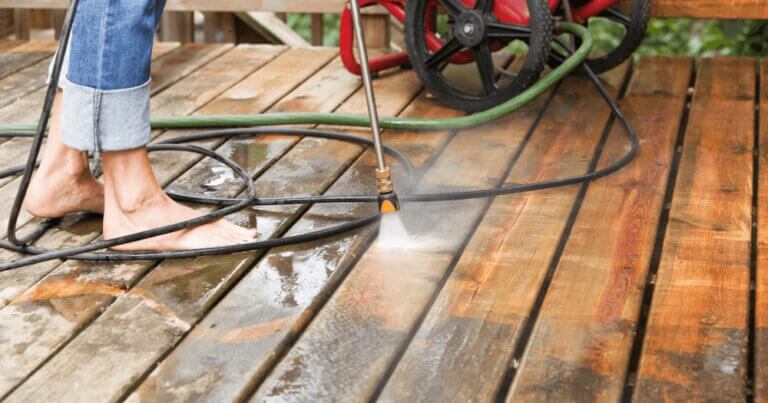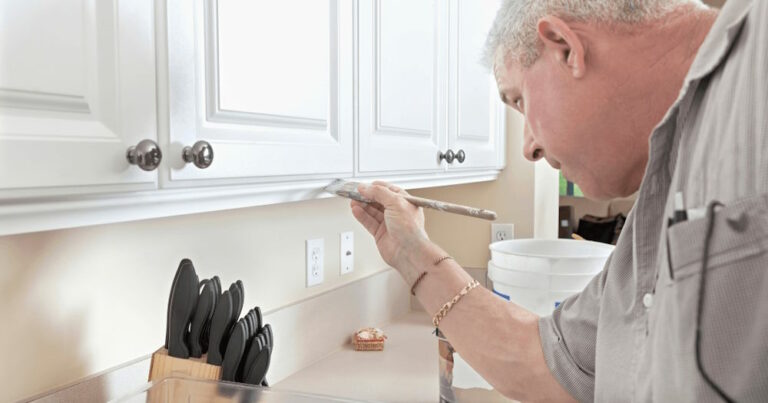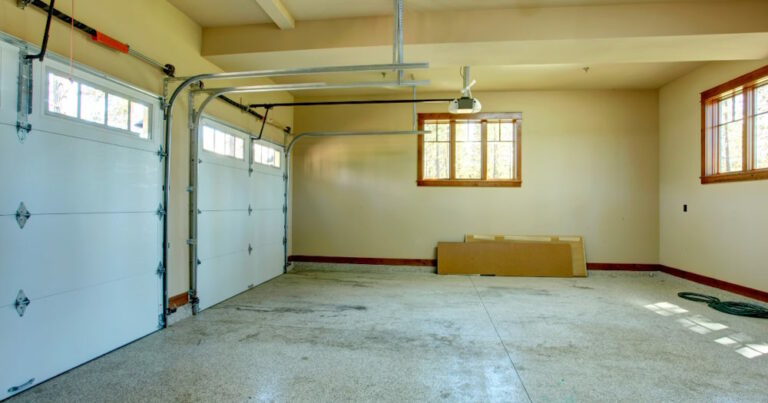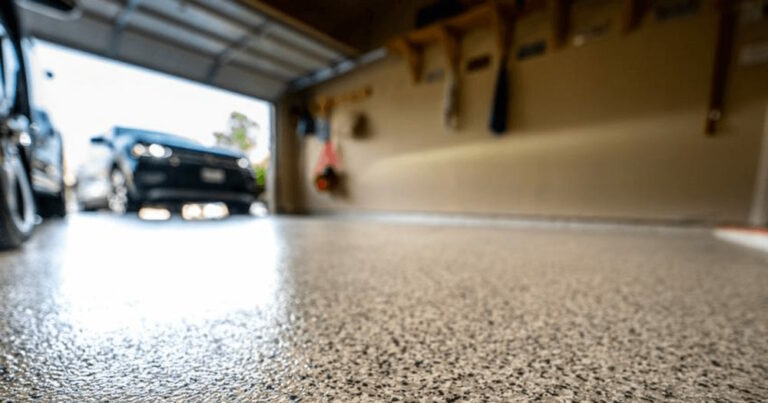If you’re planning to upgrade your garage flooring, epoxy coating offers an attractive and durable option. But before you start the project, it’s essential to understand the cost implications of an epoxy garage floor installation. While the cost varies depending on several factors, including the size and condition of your garage floor, material costs, and labor charges, having a ballpark figure can help you plan and budget effectively.
In this article, we will explore the various factors affecting epoxy garage floor cost, providing you with a comprehensive understanding of the expenses involved. From material and labor costs to the size of your garage floor and additional preparation requirements, we will cover everything you need to know to make an informed decision.
Key Takeaways
- Epoxy garage floor cost depends on several factors that impact the material and labor costs.
- Material costs for epoxy garage flooring range between $3-$12 per square foot, including the cost of the epoxy coating and the primer.
- Labor costs for epoxy garage floor installation typically range between $3-$7 per square foot.
- Floor size, surface repairs, and additional preparation requirements can affect the overall cost of the project.
- Comparing epoxy flooring costs with other garage floor options can help you make an informed decision.
Factors Affecting Epoxy Garage Floor Cost

When budgeting for epoxy garage floors, it is essential to understand the factors that influence the cost of the project. Some of the cost factors that come into play include:
- Quality of materials used
- Size of the garage floor
- Labor costs
- Additional preparation requirements
By understanding these cost factors, you can make informed decisions that will help you minimize expenses while still getting a high-quality epoxy coating for your garage floor.
Quality of Materials Used
The quality of the epoxy materials used is a crucial factor in determining the cost of your garage floor coating. High-quality materials may cost more upfront, but they often provide better resistance to wear and tear, as well as superior durability and appearance. On the other hand, lower-quality materials may be more affordable but may not last as long or provide the same level of protection and aesthetics.
When choosing epoxy materials for your garage floor, consider your budget and long-term needs. Investing in higher-quality materials may save you money in the long run by reducing the need for repairs or replacements.
Size of the Garage Floor
The size of your garage floor also affects the total cost of your epoxy coating. Larger floors require more materials and labor, which increases the overall price of the project. Conversely, smaller floors may be less expensive, but may not offer the same level of functionality or aesthetics.
If you have a large garage floor, it may be worth considering a DIY project to save on labor costs. Alternatively, you can look for contractors who offer competitive rates for larger projects.
Labor Costs
Labor costs are another significant factor to consider when budgeting for an epoxy garage floor. The complexity of installation, preparation requirements, and the expertise of the contractor can all affect the labor costs associated with the project. It is essential to do your research and compare quotes from multiple contractors to ensure that you are getting a fair price for the services provided.
Additional Preparation Requirements
In some cases, additional preparation may be required before applying an epoxy coating to your garage floor. This may include surface repairs, moisture testing, or floor leveling. Depending on the extent of these preparations, they can significantly affect the overall cost of the project. It is essential to evaluate your garage floor’s condition and get a detailed estimate from your contractor to avoid unexpected costs.
Understanding the cost factors that influence the total cost of your epoxy garage floor project is crucial for budgeting and planning. By weighing your options and making informed decisions, you can achieve a high-quality, cost-effective garage flooring solution that meets your long-term needs.
Material Costs for Epoxy Garage Floors
When it comes to epoxy garage floor cost, material expenses can vary greatly depending on the quality and type of epoxy coating. Typically, the cost ranges from $3 to $12 per square foot, with some high-end options exceeding $15 per square foot.
The cost of the epoxy coating material depends on several factors:
- Epoxy type: Epoxy coatings are available in water-based, solvent-based, and 100% solids formulations. Water-based epoxy is the most affordable, while 100% solids epoxy is the most expensive.
- Brand: Different epoxy brands have different price points, with some being more expensive due to their superior quality, warranty, or reputation.
- Thickness: The thickness of the epoxy layer affects the cost, with thicker coats requiring more material and increasing the overall cost.
Here is a table that breaks down the costs of different epoxy types and their features:
| Epoxy Type | Average Cost per Square Foot | Features |
| Water-Based Epoxy | $3-$4 | -Least Expensive
-Easy to Apply -Minimal Odor -Limited Durability |
| Solvent-Based Epoxy | $4-$6 | -More Expensive than Water-Based
-Higher Quality -Higher VOC Emissions -Improved Durability |
| 100% Solids Epoxy | $6-$12+ | -Most Expensive
-Premium Quality -Highest Durability -Low VOC Emissions -Suitable for Heavy Traffic Areas |
Note that the costs listed in the table are average estimates and may vary depending on the region, contractor, and specific project requirements. Be sure to obtain quotes from multiple suppliers to ensure you are getting a competitive price for your epoxy garage floor project.
Labor Costs for Epoxy Garage Floor Installation
The cost of epoxy garage floors is not only dependent on the material but also on the labor charges for installation. Labor costs can vary depending on various factors such as the preparation required, surface repairs, and the complexity of the installation process. When budgeting for your epoxy garage floor, it is important to understand the labor costs associated with the installation process.
Factors Affecting Epoxy Floor Installation Cost
The following factors can influence the labor charges for installing an epoxy garage floor:
- Floor preparation: The preparation required for the garage floor can impact the labor costs associated with the installation process. If the floor requires extensive cleaning, grinding, or repairs, it will increase the time and effort required for installation.
- Surface Repairs: If there are cracks, chips, or other damages to the garage floor surface, they need to be repaired before installation of the epoxy coating. The extent of repairs needed can influence the labor charges.
- Complexity of Installation: The more complex the installation process, the higher the labor charges. Installing epoxy flooring in a standard, rectangular garage is less complex than installing it in a garage with multiple nooks, crannies, and odd shapes.
The Average Cost for Epoxy Garage Floor Installation
The average cost of hiring a professional to install an epoxy garage floor is between $3 to $12 per square foot. This price varies depending on the factors mentioned earlier. The price may also vary depending on your location and the experience level of the installer.
DIY vs Professional Installation
Installing an epoxy garage floor can be a DIY project or installed by a professional. DIY projects are cost-effective, but if you are not handy with tools and don’t have the required experience, it may lead to mistakes that cost more in the long run. Hiring a professional may cost more but will ensure a quality installation without any mistakes.
“It is important to balance the cost of labor with the quality of the installation. The cheapest labor may lead to the cheapest installation, but it may not be the best or most reliable solution.”
Size Considerations and Cost Estimations
Garage floor size plays a crucial role in determining the cost of epoxy coating installation. The larger the floor area, the more materials and labor are required, resulting in a higher overall cost. Therefore, accurate size measurements are essential to ensure a realistic cost estimate.
Measuring Garage Floor Size
To measure the size of your garage floor, you will need a tape measure and a calculator. Start by measuring the length and width of the floor in feet. Multiply these two numbers to get the total square footage, which is the area of your garage floor. For example, if your floor is 20 feet long and 15 feet wide, the total square footage is 300 square feet (20 x 15 = 300).
Cost Estimation
The cost of epoxy garage floor coating can vary greatly depending on the size of the floor. Based on industry averages, the cost of installation ranges from $3 to $12 per square foot, with an average cost of $7 per square foot. Using these figures, you can estimate the cost of your project by multiplying the total square footage of your floor by the average cost per square foot. For example, if your garage floor is 300 square feet, the estimated cost would be $2,100 (300 x $7 = $2,100).
| Garage Floor Size | Average Cost of Epoxy Coating |
| 100 sq ft | $300 – $1,200 |
| 200 sq ft | $600 – $2,400 |
| 300 sq ft | $900 – $3,600 |
| 400 sq ft | $1,200 – $4,800 |
The table above shows the estimated cost range for various garage floor sizes. Keep in mind that these are just estimates, and the final cost may vary depending on the specific requirements of your project.
By accurately measuring your garage floor and estimating the cost of materials and labor, you can budget for your epoxy garage floor project with confidence.
Additional Preparation Requirements and Costs
Before installing an epoxy garage floor, there are several preparation requirements to consider that could impact the overall cost of your project. These include surface preparation, floor repairs, moisture testing, and any necessary leveling to ensure a smooth and even surface for the epoxy coating.
Surface Preparation:
Before applying the epoxy coating, the surface of the garage floor must be thoroughly cleaned and free of any debris, oil, or grease. Depending on the condition of the floor, this may require pressure washing, grinding, or acid etching, which can add to the overall cost of your project.
Floor Repairs:
If the garage floor has cracks or damage, repairs are necessary before installing an epoxy coating to ensure a smooth and seamless finish. The cost of these repairs will depend on the extent of the damage and the type of repairs required.
Moisture Testing:
Moisture testing is crucial to ensure the longevity of your epoxy garage floor. If the floor has high levels of moisture, it could lead to peeling or delamination of the epoxy coating. Testing for moisture and taking necessary precautions to mitigate any issues can add to the overall cost of your project.
Cost of Preparation:
In most cases, the cost of surface preparation, repairs, and moisture testing will be included in the labor cost of the project. However, it’s essential to discuss these costs with your contractor to ensure that they’re following industry standards and not cutting corners to offer a lower price.
Cost Comparison: Epoxy Flooring vs. Other Garage Floor Options
When considering your options for garage flooring, it’s important to factor in both the short-term and long-term costs. While some options may appear cheaper upfront, they may not be the most cost-effective in the long run. In this section, we will compare the cost of epoxy garage floors with other flooring options, providing you with the information you need to make an informed decision.
Tiles
Tiling a garage floor is a popular option, as it provides a durable, easy-to-clean surface. The cost of tiles varies widely depending on the quality and material, but on average, they range from $3 to $7 per square foot. In addition to the cost of tiles, you will also need to consider the cost of installation, which can be quite high if you hire a professional.
Concrete Overlays
Another option for garage flooring is a concrete overlay, which involves applying a layer of concrete over your existing floor. While this option is relatively inexpensive, with an average cost of $2 to $6 per square foot, it is not as durable as other options. Over time, the overlay may crack and chip, requiring costly repairs.
Traditional Sealants
Traditional sealants, such as acrylic or latex, are the cheapest option for garage floor protection, with an average cost of $0.50 to $1.50 per square foot. However, these sealants offer minimal durability and are not designed to withstand heavy use or exposure to chemicals. They may also require frequent reapplication, increasing the long-term cost.
Epoxy Flooring
Compared to other garage floor options, epoxy flooring offers the best combination of durability, longevity, and cost-effectiveness. While the upfront cost of epoxy is higher than some other options, with an average cost of $3 to $12 per square foot, it is a long-term investment that can save you money in the future. Epoxy floors are resistant to chemicals, stains, and abrasions, and can last up to 20 years with proper maintenance.
“When it comes to garage flooring, epoxy offers the best value for your money. While the upfront cost may be higher, it will save you money in the long run by providing a durable, long-lasting surface.”
Ultimately, the choice of garage flooring depends on your budget, needs, and preferences. While traditional sealants and concrete overlays may be suitable for a temporary solution, they are not ideal for a long-term investment. Tiles may provide durability and style, but they come at a significantly higher cost. Epoxy floors, on the other hand, offer the best balance of cost and quality, providing a surface that will last for years to come.
Tips for Cost-Effective Epoxy Garage Floor Projects
If you’re looking for a budget-friendly way to upgrade your garage flooring, epoxy coating is an excellent choice. Not only is it durable and easy to maintain, but it can also add value to your property. However, as we’ve discussed in previous sections of this article, the cost of epoxy garage floors can vary depending on various factors. Here are some tips to help you achieve a cost-effective epoxy garage floor project:
Consider DIY Options
One of the most effective ways to save money on your epoxy garage floor project is by considering a DIY option. While applying epoxy coating can be a bit challenging, it’s entirely possible to do it yourself with the right tools and skills. Not only will you save on labor costs, but you’ll also have the satisfaction of knowing you did it yourself.
Find Reputable Contractors
If you decide to hire a contractor for your epoxy garage floor project, it’s crucial to find someone who is reputable and experienced. Ask for references, check online reviews, and get multiple quotes to ensure you’re getting a fair price. Don’t go for the cheapest option, as this could result in shoddy workmanship, costing you more in the long run.
Optimize Material Usage
Another way to reduce the cost of your epoxy garage floor project is to optimize material usage. Calculate the square footage of your garage floor accurately, and purchase only the exact amount of epoxy coating and other materials you need. This will prevent wastage and help you stay within your budget.
Choose a Cost-Effective Epoxy Option
While high-end epoxy coatings often come with a higher price tag, that doesn’t always equate to better quality. There are many cost-effective epoxy options that provide excellent durability and aesthetic appeal. Consider your needs and budget carefully when selecting an epoxy type.
Maintain Your Epoxy Garage Floor Regularly
Finally, one of the most effective ways to keep your epoxy garage floor cost-effective is to maintain it regularly. Sweeping and mopping the floor regularly and addressing any spills or stains promptly can help prevent damage and prolong the life of your epoxy coating. This will save you money on repairs and replacement in the long run.
Conclusion

After reading this article, you should now have a clear understanding of the factors that influence the cost of an epoxy garage floor. From material and labor costs to size considerations and additional preparation requirements, planning and budgeting for your garage flooring project can be a complex task.
However, by considering the information presented in this article, you can make informed decisions that balance cost with quality and durability. Whether you decide to opt for a professional installation or take the DIY approach, having a thorough understanding of the epoxy garage floor cost will help you achieve a successful project outcome.
Remember…
When choosing the materials and labor for your project, always prioritize quality and durability over cost. Cutting corners may save you money in the short term, but it can lead to a subpar outcome that requires costly repairs or replacements down the road.
Finally, if you have any questions or concerns about epoxy garage floor cost or need further guidance on your project, don’t hesitate to reach out to a reputable contractor or consult with a professional in the field.
FAQ
What factors influence the cost of epoxy garage floors?
The cost of epoxy garage floors is influenced by factors such as material quality, labor costs, floor size, and any additional preparation requirements.
What are the different material costs for epoxy garage floors?
There are various epoxy materials available for garage floors, each with different costs. Factors such as durability, appearance, and price range should be considered when choosing the most suitable option for your needs and budget.
How do labor costs impact epoxy garage floor installation?
Labor costs for installing epoxy garage floors depend on factors such as floor preparation, surface repairs, and the complexity of the installation process. Understanding these costs will help you evaluate quotes from contractors and ensure a fair price for your project.
How does the size of the garage floor affect epoxy coating costs?
The size of the garage floor is a significant factor in determining epoxy coating costs. By measuring the floor size and understanding the relationship between square footage and material/labor costs, you can estimate the overall cost of your project more accurately.
What additional preparation requirements could affect the overall cost of an epoxy garage floor?
Additional preparation requirements, such as surface preparation, concrete floor repairs, moisture testing, and floor leveling, can impact the overall cost of an epoxy garage floor. Being aware of these requirements will help you budget for any additional costs that may arise.
How does the cost of epoxy garage floors compare to other flooring options?
Epoxy garage floors can be compared to alternative flooring options, such as tiles, concrete overlays, and traditional sealants, in terms of durability, maintenance, and overall cost-effectiveness. This comparison will help you make an informed decision about the best flooring solution for your garage.
Can I achieve a cost-effective epoxy garage floor project?
Yes, there are tips and strategies for achieving a cost-effective epoxy garage floor project. These include DIY options, optimizing material usage, and finding reputable contractors. By implementing these tips, you can minimize costs while still obtaining a high-quality epoxy coating for your garage floor.
What are the key points to consider regarding epoxy garage floor cost?
The key points to consider regarding epoxy garage floor cost are the factors influencing cost, the different material options and their costs, labor costs, the impact of garage floor size, additional preparation requirements and costs, cost comparison with other flooring options, and tips for cost-effective projects. Understanding these points will enable you to plan and budget for your epoxy garage floor project effectively.





